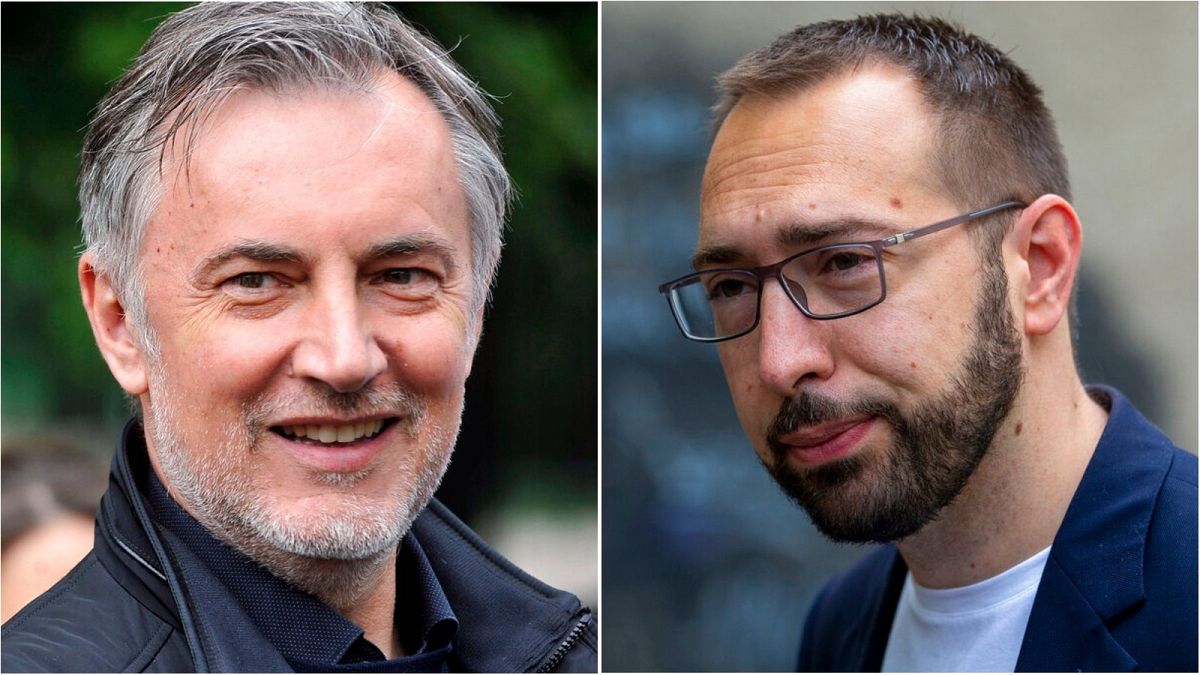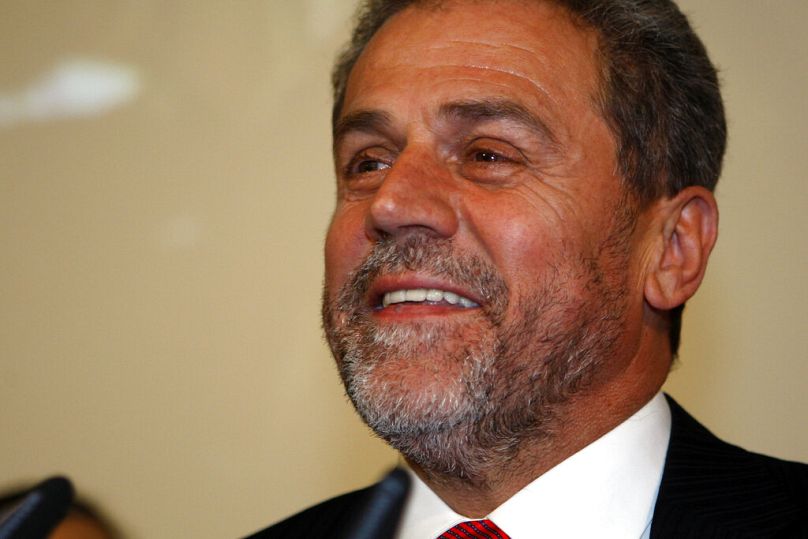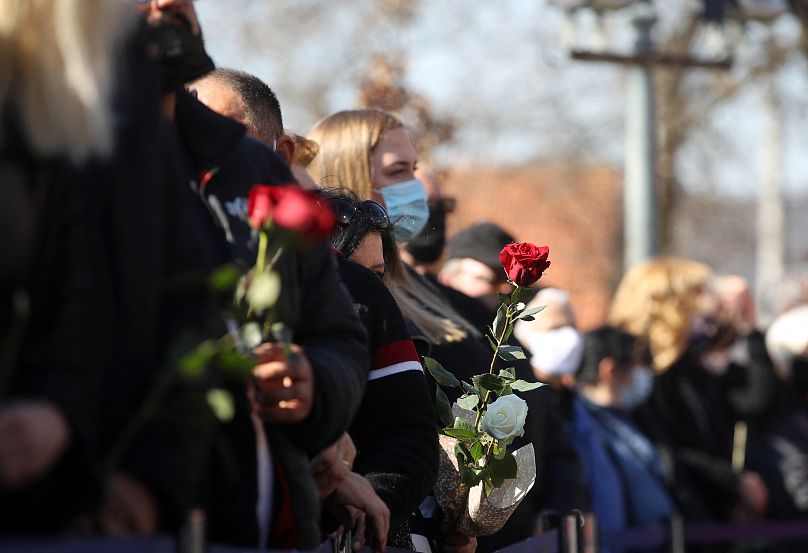Milan Bandic ruled Zagreb as a personal fiefdom for 20 years until his death in March. Now, two candidates are competing against both each other and his legacy.
Hugging Sava River’s southern shore, Bundek Park is a verdant collection of tree-lined pathways and an artificial reservoir in Croatia’s capital, Zagreb. The green space, opened in 2006, could easily be imagined in a larger, more glamorous European capital.
Just three kilometres to the east lies Jakusevec, Zagreb’s garbage dump which famously burst into flames two years ago. Just five kilometres to the west of the park is a decaying hospital complex, abandoned mid-construction in 1992.
Plans to address both eyesores have come and gone, lost in a tangle of alleged corruption, bureaucratic wrangling, and a game of broken telephone between local and national governments.
The de facto architect of the hospital-park-landfill triptych, Zagreb’s long-serving Mayor Milan Bandic, was running for a seventh term this spring. His opponents’ promised a new era ending the incumbent’s 20-year rule. It arrived early: the mayor unexpectedly died of a heart attack in March, changing both the race and the local and national political landscape.
Whoever takes Bandic’s place will inherit a municipal and political machine equally adept at churning out glistening parks as it is flaming garbage dumps.
Unsurprisingly after 20 years, both candidates are promising big change.
The runoff election on Sunday pits far-right leader and MP Miroslav Skoro against green leftist MP Tomislav Tomasevic, and while both offer promises for reform, they propose very different paths to get there.
Skoro, 59, a former pop singer, formed the Homeland Movement party to fill a political vacuum in the nation’s far-right, coming third in Croatia’s presidential elections in 2019. Skoro has promised to reform the city’s broken government and block an opponent he has branded “neither green nor left, but extremely left”.
Tomasevic, 39, and his Mozemo! (“We can!”) party touts a history of civic and environmental activism, with eight years spent opposing Bandic in the city’s assembly. A Cambridge graduate who rides a bike to press conferences, Tomasevic touts a progressive environmental policy as a road to a better quality of life in Zagreb and economic progress. He portrays Skoro as a political carpetbagger wholly unfamiliar with the city’s problems.
Both candidates promise to bring rationality back to a municipal government marred by clientelism, wasteful spending, and corruption.
Tomasevic and Skoro won 45 and 12 per cent of first-round votes, respectively. Croatia’s election laws require a runoff if no candidate earns over 50 per cent of all votes cast.
The green leftist earned as many votes as the next five candidates combined, carrying 16 of 17 electoral districts. His party fell one seat short of an absolute majority in Zagreb’s assembly. Tomasevic’s strong showing in the first round and recent polls suggests he’ll trounce Skoro on Sunday.
Bandic's long shadow
But the pair face a third opponent, the ghost of Bandic, whose tenure casts an inescapable shadow over the entire city.
“Most people can’t tell you who was Zagreb’s mayor before Milan Bandic,” said Karlo Jurak, an analyst and political science professor at the University of Zagreb, who lives in the city.
“As soon as you have someone of that stature, with whom history seemingly starts, it’s going to be a factor.”
Two parties have exchanged power nationally during Croatia’s relatively brief existence: the conservative Croatian Democrat Union [CDU] and the left-of-centre Social Democrats. Bandic spent most of his tenure walking a political tightrope between both sides, forming beneficial alliances with whoever was in power at the moment.
“The key to Bandic’s tenure wasn’t ideology,” Jurak said, pointing to the late mayor’s penchant for political pragmatism and personal gain.
“He offered a hand to every party at the national level. His goal was to stay in power.”
Bandic’s surprise death not only caught both parties off guard but the nation’s largest municipal budget now outside their grasp.
Tomasevic entered the mayoral race targeting the incumbent, and early polls suggested he was headed to a second-round runoff against Bandic. His party’s platform still reads like a 200-page negation of Bandic’s policies.
Skoro also blames the late incumbent for a plethora of Zagreb’s ills, from a faltering municipal government to a culture of corruption fueling low turnout at every election.
“Clientelism and corruption have marked the long reign of the late mayor, and unfortunately the corrupt ‘octopus’ has permeated politics at the national level as well, so I understand very well why citizens feel [apathetic],” Skoro said in an e-mail interview.
“If something is the norm, it does not mean that it is normal. In fact, it is unacceptable.”
Tomasevic’s campaign declined to respond to questions ahead of publication.
Running against Bandic despite his absence may not be daft as it seems at first. It’s a magnet for an oft-neglected voting bloc: optimists.
“New voters focused on the city’s problems and drawn to the idea of change are coming out to vote this year,” the analyst Jurak said.
Mozemo and Tomasevic released an extensive manifesto calling for a systemic overhaul of the way the city functions, with an emphasis on transparency, environmentally-friendly policies, and improved public services.
Skoro’s vision for the city includes similar promises to reform the way the government is run, while also trying to tie his opponent to ideological extremists.
He has characterized Tomasevic as neither left nor green, claiming Mozemo shows elements of a leftist movement which “should not be allowed to return to Croatia nor Zagreb” an attempt to connect Mozemo with the former Yugoslavia’s socialists.
While Jurak fell short of dismissing Skoro's chances but said he was using the runoff as a chance to “send messages to his nationwide base”.
Whoever wins will inherit the city’s sizable budget and complicated bureaucratic contraption, all enmeshed into a circuitous political machine designed to keep Bandic in power. In the wrong hands, it could continue its propensity for corruption. The stakes for the city couldn’t be higher.
A problematic inheritance
Many problems await Zagreb’s next mayor beyond decrepit hospitals and flammable landfills. A powerful earthquake hit the city in March 2020 and rebuilding efforts have yet to take off. Both candidates have promised to jumpstart the recovery work.
The city’s ballooning debt, infrastructure, gridlock, and a dearth of schools and daycare centres all need to be addressed.
There’s also Zagreb’s sprawling municipal apparatus. The city functions via 27 agencies and offices, including a quasi-private enterprise called Zagreb Holding. The hybrid firm contains 22 sub-entities that provide public services such as waste management, bus stations, and water supply. Elsewhere, these services are handled in-house by municipal governments.
Under Bandic, the company served as the alleged piggybank for a decades-long run of clientelism, doling out profitable nepotism jobs and lucrative contracts via allegedly corrupt public tenders. It is also a massive user of taxpayer money, according to locals.
“Different branches and offices need to be merged into one and thus make the business more efficient,” said Skoro. “Public tenders will no longer be just a screen for hiring godparents, friends, party colleagues, but will be truly public and transparent and will select experts in individual fields.”
Tomasevic has also promised to clean house at Holding as best he can, but tempered expectations. The nation’s employment laws make department heads and agency directors difficult to sack. They’ve promised they won’t go quietly, threatening to file lawsuits if a new administration tries to fire them.
“[Tomasevic] could face a problem with the gap between expectations and what he can actually accomplish,” Jurak said.
Successful self-promotion is also integral to the job
Zagreb’s municipal machine is built in Bandic’s image: theatrically showcasing diligence and self-sacrifice, yet opaquely doling out the city’s substantial funds.
Bandic was a self-proclaimed hyper-ambitious workaholic. He assumed a punishing public schedule and used pugilistic rhetoric against his opponents, ensuring a constant presence on the city’s streets and media. His final campaign slogan before his death was simply “Tireless”.
The targets of all his efforts often drew ridicule. Critics frequently lambasted Bandic for ignoring the city’s crumbling infrastructure and lacklustre quality of life in favour of beautification projects like parks, monuments, and fountains. The latter became a rolling punchline for Zagreb’s wasteful spending. Still, photos of Bandic in hard hats at construction sites or aprons were ubiquitous.
So were corruption trials. Bandic faced several investigations during his tenure. While acquitted in one corruption trial, at the time of his death he and 10 co-defendants faced charges of allegedly embezzling three million euros. Bandic’s name was often among the first mentioned when a discussion of Croatia’s alleged culture of corruption arose.
Bureaucratic mismanagement and miscommunication also dogged Bandic’s two-decade tenure, with successive governments unable to iron out a plan to fix the unfinished hospital in Blato.
When Bandic did address bread-and-butter issues like roads — or propose ambitious projects — it drew scrutiny as a potential source of sweetheart deals or overdevelopment. Yet occasionally, a crown jewel park emerged.
A race with national implications
Zagreb’s mayoral race may have effects well beyond the city’s borders, according to Jurak.
Whoever wins can use his tenure helming Croatia’s largest municipal government as a litmus test for broader appeal across the country. Fixing a perceived political cesspool like Zagreb could increase Tomasevic or Skoro’s national profile.
Croats have a habit of seeking an alternative “third option” and then quickly ditching them. Pundits argue this time is different.
New third options with strong showings in this local election cycle, including Tomasevic’s Mozemo!, are self-generated parties created around a specific set of issues largely ignored by the establishment. They are not offshoots of the established order. Other major Croatian cities like Split and Rijeka have given third party, mostly leftist candidates, a shot at runoffs this weekend.
Skoro, who already ran for president, has not hidden his bigger aspirations for national office. Mozemo and Tomasevic, however, claim their focus is solely on Zagreb. Both candidates’ plans are focused on fixing the flaming landfill. For now.
Every weekday, Uncovering Europe brings you a European story that goes beyond the headlines. Download the Euronews app to get a daily alert for this and other breaking news notifications. It's available on Apple and Android devices.




